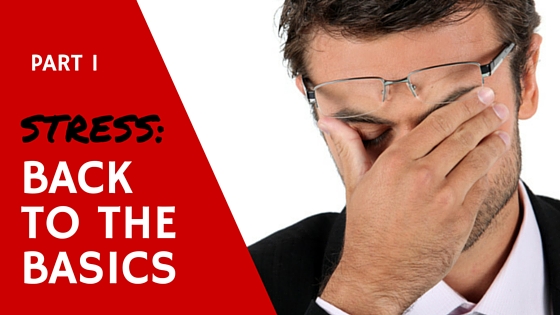Feeling pressured to meet too many demands? Losing sleep due to worrying? Forgetting details? Perhaps you may be stressed—and if you are, you’re not alone. Everyone experiences stress, from children to adults, and given its prevalence, we’re kicking off a four-part series on stress this month. In this initial installment of our stress series, we’ll take a look at how stress is defined.
Stress is difficult to pin down, because everybody experiences differently. However, in general, stress is your body’s natural response to meet a perceived challenge or threat—let’s call these stressors. Now let’s take a closer look at your body’s “natural response” to stressors. Through a sophisticated alert system in your body, hormones, including adrenaline and cortisol, speed up your heart rate, blood pressure, and metabolism, resulting in physical changes that help to improve vision, hearing, and movement. Essentially, your body readies itself to react quickly and effectively. After the stressor is eliminated, your body returns to a normal state of alertness—until the next stressor arises.
Stressors can vary, and although they can be described as good or bad, the impact of stressors often depends on your perception of potential threat. Here are three general types of stressors, each of which carries a different level of threat:
- Routine stress, related to the pressures of work, family and other daily responsibilities
- Stress brought about by a change, such as losing a job, moving homes or illness
- Traumatic stress, experienced in an event in which serious harm or danger was possible
Very often, stress can be useful, particularly when we’re exposed to immediate danger. Yet recurring, ongoing or chronic stress can cause you to experience persistent, low-levels of stress, leading to a weakened immune system, making you feel depleted and overwhelmed, at the very least. To make matters worse, you may have less tolerance to objectively discern the threat level of future stressors or a decreased ability to return to a normal state of alertness, both of which lead to subsequent demand on your alert system and pose risk to your physical and mental health.
Finally, let’s review some of the symptoms of stress. Keep in mind that we all experience stress differently, and ultimately, a doctor, a therapist, or a counselor can help you to begin to explore if stress is indeed the cause of your symptoms, which may include:
Physical:
- Tight muscles
- Cold or sweaty hands
- Headaches
- Back of neck tension
- Tense shoulders
- Sleep disturbance
- Stomach distress
- More colds and infections
- Fatigue
- Rapid breathing
- Pounding heart
- Trembling
- Dry mouth
- Sore or tired eyes
- Heart or chest pain
- Oily skin; acne
- Butterflies in stomach
Emotional:
- Anxiety
- Irritability
- Fear
- Moodiness
- Embarrassment
- Jumpy
- Depressed
- Hostile/Angry
- Frustrated
Behavioral:
- Stuttering
- Other speaking difficulties
- Crying
- Acting impulsively
- Nervous laughter
- “Snapping” at others
- Teeth grinding
- Jaw clenching
- Increased smoking
- Being prone to more accidents
- Increased appetite
- Decreased appetite
- Frequent urination
Cognitive/Thought-Based:
- Self-criticism
- Difficulty concentrating
- Difficulty in making decisions
- Forgetfulness
- Mental disorganization
- Preoccupation with the future (“what if…”)
- Repetitive Thoughts
- Fear of Failure
Next week we’ll dive into coping strategies for stress. In the meantime, our friendly and experienced therapists are qualified to help implement relevant and effective solutions that you’re looking for. Our services include specialized child and teen therapy, individual and family therapy, couples counseling, and group therapy.
As always, at TherapyWorks, clients enjoy perks that aren’t often found with other counseling agencies, such as a professional and responsive support team, convenient scheduling options, evening and weekend appointments, and contemporary privacy practices. We offer a warm yet modern space, because your comfort is important to us.
Interested in a free consultation in either our Los Gatos or Santa Cruz locations? Contact us today, and we’ll happily assist you.
